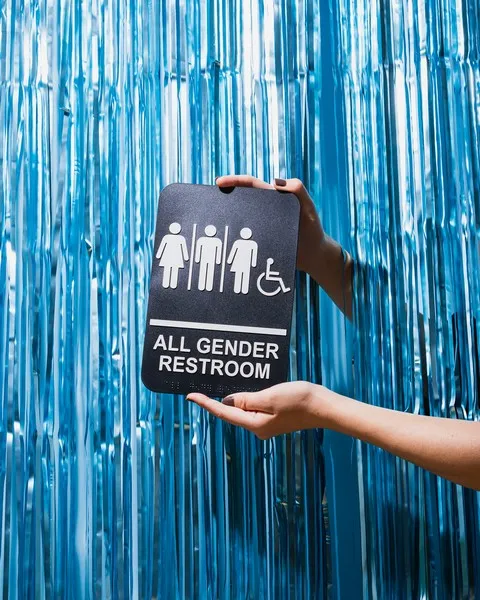Table of Contents
- Introduction
- The History and Purpose of International Men’s Day
- Understanding Masculinity Through a Sociological Lens
- Men’s Mental Health: Breaking the Silence
- Gender Roles and the Pressure to Provide
- Men as Victims: Addressing Overlooked Issues
- Men’s Health: The Gender Disparities in Healthcare
- Gender Equality: Why International Men’s Day Matters
- The Controversies Surrounding International Men’s Day
- Conclusion: The Future of International Men’s Day
- Poll
- Think!
- Essay Suggestions
- Research Suggestions
- Further Reading
Introduction
International Men’s Day (IMD), observed annually on November 19th, is a day dedicated to recognizing and celebrating the achievements, contributions, and challenges faced by men and boys globally. While International Women’s Day often receives considerable attention, International Men’s Day is less publicized, sometimes misunderstood, and even subject to controversy. This day presents a valuable opportunity to delve into pressing social issues involving masculinity, gender equality, and the complex interplay of social expectations on men’s lives. This article will provide a sociological analysis of International Men’s Day, exploring the significance of gender norms, the concept of hegemonic masculinity, and the broader implications for societal well-being.
The History and Purpose of International Men’s Day
International Men’s Day was first inaugurated in 1999 by Dr. Jerome Teelucksingh, a lecturer from Trinidad and Tobago. He envisioned this day as a platform for discussing men’s mental and physical health, celebrating male role models, and promoting gender equality. The primary objectives of International Men’s Day are to create positive awareness of men’s experiences and to provide a space for dialogue about the challenges faced by men, including mental health struggles, workplace stress, and societal expectations around masculinity.
Understanding Masculinity Through a Sociological Lens
Hegemonic Masculinity and Gender Norms
The concept of hegemonic masculinity, developed by sociologist R.W. Connell, is crucial to understanding the significance of International Men’s Day. Hegemonic masculinity refers to the dominant form of masculinity within a given cultural context—one that embodies the traditional expectations and norms that many societies hold for men. Traits such as strength, independence, stoicism, and assertiveness are often seen as essential components of masculinity. Men are socialized from an early age to embrace these characteristics, leading to both internal and external pressures to conform.
However, hegemonic masculinity does not only serve to maintain gender inequality between men and women; it also creates a hierarchical structure among men. Those who fail to embody the dominant standards are often marginalized. This phenomenon is particularly visible among men who do not fit the conventional standards of masculinity—such as those who are more emotionally expressive, have non-traditional interests, or do not conform to heterosexual norms.
Toxic Masculinity and its Impact
The concept of toxic masculinity has gained significant traction in contemporary discourse around gender. Toxic masculinity refers to the harmful aspects of traditional masculinity, including the suppression of emotions, aggressive behavior, and the denigration of anything perceived as feminine. This concept does not suggest that all masculinity is inherently negative, but rather that certain cultural norms surrounding masculinity can lead to harmful outcomes, both for men and for society.
Toxic masculinity is associated with a range of negative consequences, including violence, risky behaviors, and the suppression of emotions. Men’s reluctance to seek emotional or psychological help due to perceived stigma around vulnerability often contributes to higher rates of suicide and substance abuse. International Men’s Day aims to challenge such stereotypes, encouraging men to embrace a broader and healthier definition of masculinity—one that allows for emotional openness, vulnerability, and a rejection of harmful behaviors.
Men’s Mental Health: Breaking the Silence
The Mental Health Crisis Among Men
One of the key themes of International Men’s Day is raising awareness about men’s mental health. In many cultures, men are often expected to adopt a “stiff upper lip” and refrain from openly discussing their emotional struggles. This expectation is deeply embedded in the norms of hegemonic masculinity, which prizes stoicism and emotional self-control. As a result, men often internalize their struggles rather than seeking support.
Statistically, men are more likely to die by suicide than women, and they are less likely to access mental health services. The reluctance to seek help can be linked to the fear of being perceived as weak or “unmanly.” The concept of masculinity as inherently invulnerable is detrimental, and International Men’s Day serves as a reminder of the importance of encouraging men to seek help and to dismantle the stigma surrounding mental health. Moreover, men face additional barriers such as lack of social support networks, as men are often discouraged from forming deep emotional bonds with friends due to prevailing masculine norms. The portrayal of mental health struggles in media and the lack of male role models openly discussing their mental health also contribute to the hesitancy. By creating safe spaces for men to share their experiences and promoting public campaigns to normalize mental health conversations, society can help alleviate some of these pressures. Structural interventions, such as mental health policies that specifically target men and workplace initiatives encouraging emotional well-being, are also necessary to address this crisis. Additionally, education systems should include discussions on mental health that normalize vulnerability and emotional expression, emphasizing that seeking help is a strength rather than a weakness.
Family dynamics also play a significant role in supporting men’s mental health. Encouraging open communication within families about mental well-being, and breaking the intergenerational cycles of silence around emotional struggles, can help mitigate the impact of these harmful norms. Community support groups and peer counseling initiatives can also provide men with opportunities to express their feelings without fear of judgment, thus fostering a culture of empathy and support.
Employers and workplaces must also acknowledge their role in supporting men’s mental health. Implementing mental health initiatives that specifically cater to men, providing access to confidential counseling services, and creating work environments that allow for flexibility and well-being can make a significant difference. It is vital for workplaces to destigmatize mental health issues and promote a culture where asking for help is normalized. By collectively addressing these aspects, International Men’s Day can truly contribute to breaking the silence surrounding men’s mental health, promoting a future where men can openly express vulnerability without facing societal backlash.
Gender Roles and the Pressure to Provide
The Breadwinner Role
Historically, men have been assigned the role of the “breadwinner” in many societies, responsible for providing financially for their families. Although this expectation has shifted in recent decades, the breadwinner ideal remains a powerful element of masculine identity for many men. When men are unable to fulfill this role, whether due to economic factors, unemployment, or other reasons, they may experience a sense of failure and inadequacy.
The breadwinner model creates immense pressure for men to perform, contributing to stress, anxiety, and other mental health concerns. The economic challenges brought on by recessions and the precarious nature of modern labor markets have compounded these pressures, often leaving men feeling as though they are unable to meet societal expectations. International Men’s Day encourages conversations about these issues, highlighting the need for societal change to alleviate such gendered pressures.
Shared Parenting and the Changing Nature of Fatherhood
Another important theme that arises on International Men’s Day is the evolving role of fatherhood. Traditional gender roles have often cast men in the role of disciplinarians and financial providers rather than nurturers. However, there is growing recognition of the importance of men’s involvement in the emotional and caregiving aspects of parenting. Contemporary fatherhood increasingly involves active participation in the day-to-day care of children, which not only benefits children but also strengthens the father-child relationship.
Challenging traditional norms of fatherhood allows men to experience a more holistic sense of identity, one that includes nurturing and caregiving. International Men’s Day emphasizes the importance of supporting men in their roles as caregivers and encourages policies that promote work-life balance and shared parental responsibilities.
Men as Victims: Addressing Overlooked Issues
Get the full article AD FREE. Join now for full access to all premium articles.
View Plans & Subscribe Already a member? Log in.





